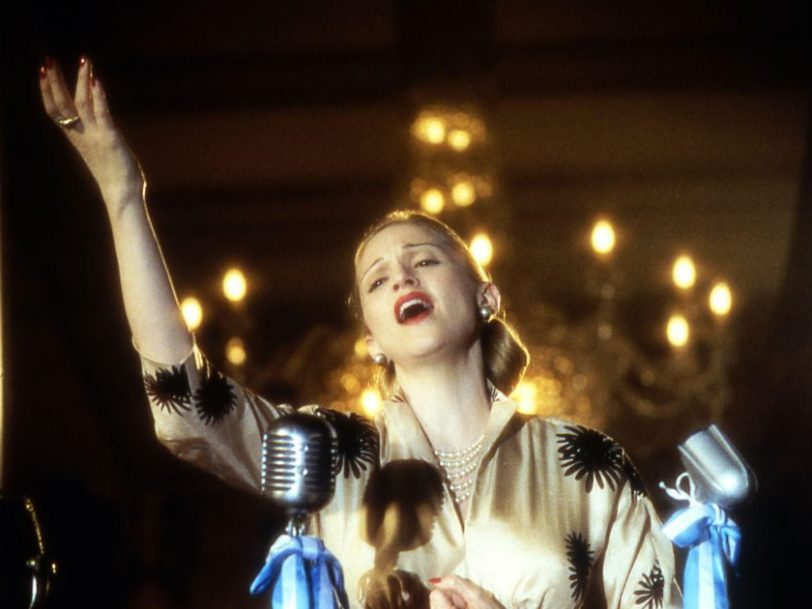It was the film role she fought ferociously hard to secure, and the performance on which the whole project hung, but Madonna’s recording of Don’t Cry For Me Argentina, for the 1996 adaptation of Evita, proved the triumphant centrepiece it had to be, undoubtedly helping the “Queen Of Pop” secure a much coveted Golden Globe for Best Actress – Motion Picture – Musical Or Comedy.
Listen to the best of Madonna here.
“This is the role I was born to play”
The cinematic adaptation of Evita had been an on-and-off objective ever since the curtain rose on the premiere of the Tim Rice and Andrew Lloyd Webber hit musical in London’s West End, in June 1978. Julie Covington’s original rendition of Don’t Cry For Me Argentina – covered many times since – had made it all the way to No.1 in the UK a year earlier, and critics raved about the pop/rock opera, which yielded two immediate UK chart hits in the David Essex version of Oh What A Circus and Barbara Dickson’s Another Suitcase In Another Hall (also later a European single release for Madonna).
It was in the 80s, and at the height of Madonna’s first wave of success, when her name became attached to the role of Eva Perón, the activist and First Lady Of Argentina whose life story the musical told. But other artists, such as Liza Minnelli, Meryl Streep and Barbra Streisand, were also briefly rumoured to have won the part. In the end, scheduling and financing issues scuppered these early attempts at the project, which had been attached at different times to directors Ken Russell and Oliver Stone, and it wasn’t until 1994 that serious momentum built around the movie concept once more.
Personal parallels: a woman who fought resiliently for her position
Madonna was determined that, this time, the role would be hers. Coming off the back of the controversial Erotica album and its more softly seductive follow-up, 1994’s Bedtime Stories, she sensed that a major cinematic project such as Evita would offer a reinvention, creatively and practically, that would once again force critics to play catch-up. Madonna adores a challenge, and the personal parallels with the former Argentinian First Lady remain obvious: Eva Perón was a woman out of her time who fought resiliently for her position, who was adored by her public, and who proved a serious challenge to the patriarchal establishment.
In securing the part, Madonna wrote a personal letter to the film’s director, Alan Parker, explaining why she felt so drawn to the project, and enclosed a copy of the atmospheric video she had created for her then recent US chart-topper Take A Bow, which enjoyed seven weeks on top of the Billboard listings as part of a stunning run of Madonna No.1 singles. She would later say, “This is the role I was born to play.”




